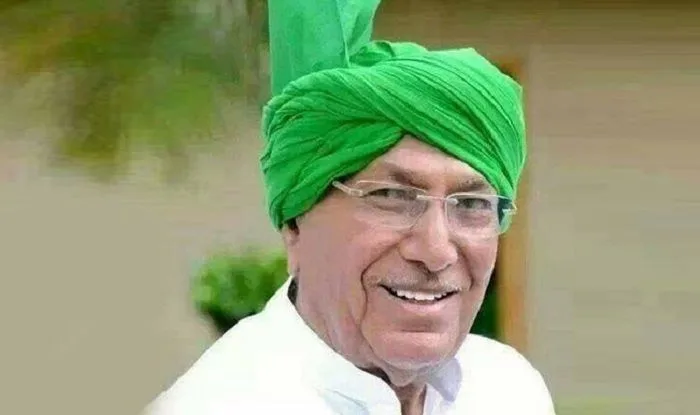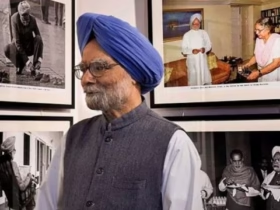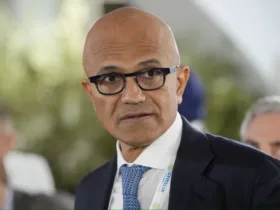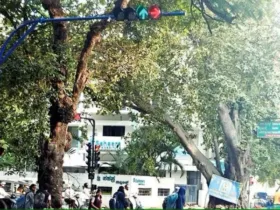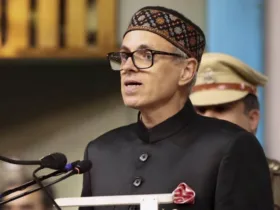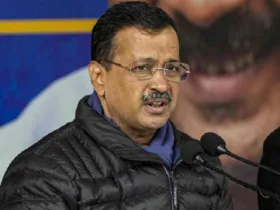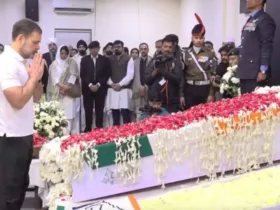Om Prakash Chautala, the former Chief Minister of Haryana and the long-time leader of the Indian National Lok Dal (INLD), passed away at the age of 89 on December 20, 2024. His death marks the end of an era in Haryana’s political landscape, leaving behind a legacy of significant contributions to the state’s development, a career filled with both achievements and controversies, and a political family that continues to influence Haryana’s governance.
Early Life and Political Beginnings of Om Prakash Chautala
Born on January 1, 1935, in Chautala village (now in Haryana, previously part of Punjab), Om Prakash Chautala was born into a prominent political family. His father, Chaudhary Devi Lal, was one of the most influential political figures in Haryana and served as the Deputy Prime Minister of India. Chautala’s political journey began in the early 1960s, inspired by his father’s values and leadership. He was drawn into the political sphere at a young age, becoming actively involved in his father’s political campaigns and ideology.
Chautala’s rise within the political structure was steady. He joined the Indian National Congress (INC) and quickly made a name for himself within the party. However, his political career saw a significant shift in 1975 when he became a founding member of the Indian National Lok Dal (INLD), a regional political party. The formation of the INLD was driven by his father’s vision of providing a platform for farmers and rural development, a mission that Om Prakash Chautala carried forward throughout his political career.
Political Career and Leadership of Om Prakash Chautala
Chautala’s career in politics was marked by his tenure as Chief Minister of Haryana. He served in this capacity for four non-consecutive terms, demonstrating both political acumen and a strong support base in the state. His terms as Chief Minister were as follows:
- December 1989 – May 1990
- July 1990 – July 1990
- March 1991 – April 1991
- July 1999 – March 2005
During these periods, Chautala focused primarily on agricultural development and rural infrastructure, which were central to his political agenda. Haryana, an agrarian state, relied heavily on agricultural output, and Chautala made several efforts to improve the welfare of farmers. His administration saw the construction of better roads, the expansion of irrigation systems, and schemes aimed at improving the socio-economic conditions of the rural population.
In addition to his focus on rural development, Chautala also worked to improve Haryana’s education system, particularly in rural areas. His government implemented various social welfare programs aimed at improving the lives of marginalized sections of society, especially women and children.
However, his tenure was not without controversy. Critics often accused him of favoring his family and party members in government appointments and projects. Despite this, he maintained a loyal following, particularly in rural Haryana, where his political influence remained strong.
Legal Challenges and Imprisonment
Om Prakash Chautala’s career was not without its legal and political challenges. One of the most significant moments came in the 2010s when he was embroiled in the recruitment scam that involved the illegal appointment of teachers in Haryana’s government schools. This case, which came to light in the mid-2000s, led to widespread accusations of corruption.
In 2012, Chautala was convicted along with his son, Ajay Chautala, and others for their role in the illegal recruitment of 3,000 teachers. The conviction resulted in a ten-year sentence for Chautala, which was later reduced after appeals. However, his legal troubles continued, and in 2022, he was sentenced to four years in prison in connection with a disproportionate assets case. His sentence in the assets case was a significant blow to his political career and reputation, though it did not diminish his influence among his supporters.
At the time of his imprisonment in 2022, Om Prakash Chautala, at 87 years old, became the oldest inmate at Tihar Jail in Delhi. Despite his advanced age, Chautala maintained his health and continued to engage with political affairs, though his physical presence in public events was limited. His release on bail in 2023 allowed him to return to political life, but his health continued to decline in the years that followed.
Chautala’s Legacy
Om Prakash Chautala’s political legacy is a mixture of achievements and controversies. He was undoubtedly a stalwart of Haryana politics, playing a pivotal role in shaping the state’s political landscape. His contributions to rural development, education, and social welfare were substantial, and his work in these areas left an enduring impact on the lives of millions of people in Haryana.
Chautala’s legacy, however, is also marked by allegations of corruption and political favoritism. The recruitment scam, in which he was convicted, and his subsequent legal battles over disproportionate assets, have led to a tarnished image for the once-popular leader. Nevertheless, his ability to command a loyal base of supporters, particularly in rural Haryana, indicates his deep connection with the people of the state.
Chautala was also a family man, and his political legacy has been carried forward by his son, Abhay Singh Chautala, who currently leads the INLD. Abhay Singh has attempted to maintain his father’s political stature while navigating the complexities of modern-day politics. Despite facing challenges from the rise of other political parties in Haryana, including the Bharatiya Janata Party (BJP) and the Indian National Congress, the Chautala family remains an influential force in Haryana’s political sphere.
Political Tributes and Reactions
Om Prakash Chautala’s passing has sparked an outpouring of tributes from political leaders across India. Haryana Chief Minister Nayab Saini expressed his grief, calling Chautala’s death an “irreparable loss” to the state’s politics. Saini, who comes from a rival political party, acknowledged Chautala’s contributions to the state’s development and offered condolences to his family.
Other prominent leaders, including Prime Minister Narendra Modi, Congress President Mallikarjun Kharge, and several regional leaders, paid tribute to the veteran politician. These tributes highlight the respect Chautala commanded from political figures across the spectrum, despite the controversies that marked his career.
The INLD, under the leadership of Abhay Singh Chautala, has promised to continue his father’s work, striving to uphold his political legacy. This includes focusing on the welfare of Haryana’s farmers, the upliftment of rural areas, and promoting the political philosophy that Om Prakash Chautala espoused throughout his life.
Conclusion
The death of Om Prakash Chautala represents the end of a significant chapter in Haryana’s political history. He was a leader who shaped the state’s development for decades, leaving behind a mixed but undeniable legacy. As Haryana enters a new political era, Chautala’s influence will be felt for years to come, both through the policies he championed and the family he left behind.
While his legal troubles and controversies may have shadowed his career in later years, his early work in rural development, education, and welfare continues to be remembered by those who benefitted from it. As his son Abhay Singh Chautala strives to carry on his father’s political work, the Chautala family’s role in Haryana’s future remains a subject of great interest and debate.

